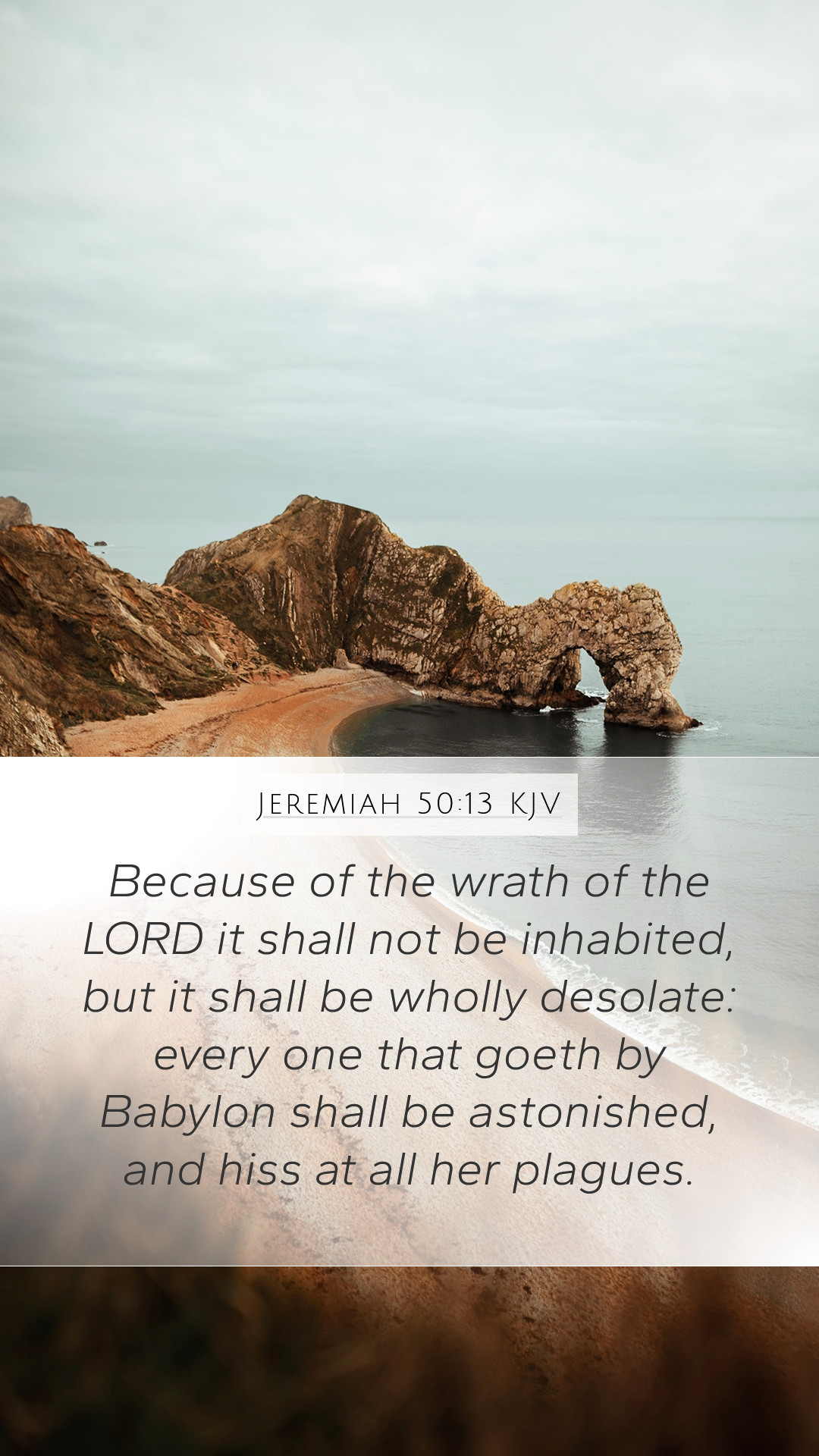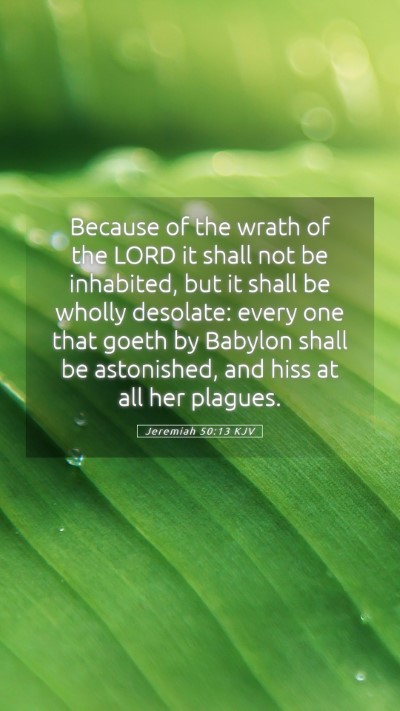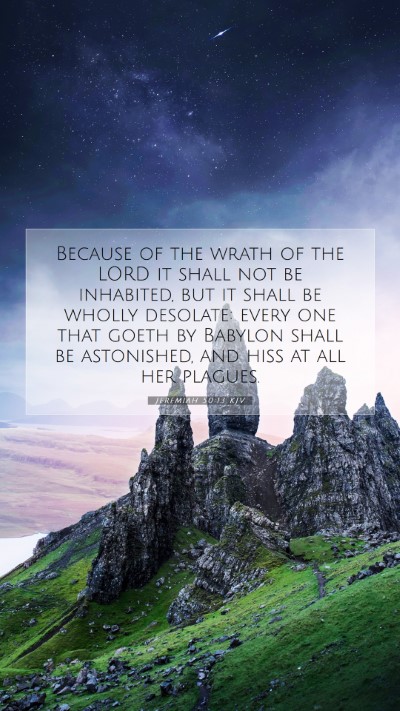Bible Verse Explanation: Jeremiah 50:13
Jeremiah 50:13 states: "Because of the wrath of the LORD it shall not be inhabited, but it shall be wholly desolate: every one that goeth by Babylon shall be astonished, and hiss at all her plagues."
In this verse, the prophet Jeremiah conveys a profound warning regarding the fate of Babylon. Through the lens of public domain commentaries, we can extract deeper meanings associated with this passage.
Understanding the Context
To grasp the significant implications of Jeremiah 50:13, we must understand its historical and prophetic context. Babylon was a dominant power known for its formidable reputation, yet this verse foretells its desolation due to the wrath of God. Matthew Henry describes this desolation as a result of God's judgment, emphasizing that divine wrath leads to complete ruin where once there was glory.
Theological Interpretation
- Divine Judgment: Albert Barnes notes that the total devastation of Babylon symbolizes God's retribution against wickedness and pride. The concept of divine justice plays a critical role in understanding why God would command such utter ruin.
- Desolation as a Reality: Adam Clarke adds depth to this understanding by stating that Babylon's desolation stands as a warning to all nations, emphasizing that they too could fall under God's judgment should they deviate from righteousness.
Symbolism in Jerusalem's Prophetic Context
Jeremiah’s prophecies are rich in symbolism, underscoring the transient nature of human glory when opposed to divine will. Babylon, a city once teeming with life, becomes a subject of amazement as travelers observe its emptiness, as highlighted by Clarke, suggesting that God's judgments should lead to reflection and moral introspection in observers.
Biblical Exegesis and Cross References
The interpretation of this verse can be further enriched by examining related scripture passages which enhance our understanding of divine judgment:
- Revelation 18:2: "And he cried mightily with a strong voice, saying, Babylon the great is fallen, is fallen, and has become a dwelling place of demons." This verse resonates with Jeremiah's prophecy about Babylon's ultimate fall.
- Isaiah 13:19: "And Babylon, the glory of kingdoms, the beauty of the Chaldeans' pride, will be as when God overthrew Sodom and Gomorrah." This emphasizes the destructiveness of divine wrath, showcasing a parallel to the warnings found in Jeremiah.
- Lamentations 1:1: "How solitary sits the city that was full of people! How like a widow is she, who was great among the nations!" This reflects on the desolation Jeremiah warned about, tying the consequences of disobedience back to the spirit of lamentation in prophetic literature.
Application to Daily Life
The warnings in Jeremiah 50:13 are not merely historical; they have relevance in today's context. One can derive moral lessons about pride, reliance on human strength, and the consequences of turning away from God's commands. Matthew Henry's commentary advises readers to be vigilant against the subtle integration of sin into their lives, recognizing that the same desolation could apply to any heart that chooses abandonment of righteousness.
Conclusion.
In summary, Jeremiah 50:13 serves as a critical reminder of God's sovereignty and the eventual outcome of pride and wickedness. It illustrates the importance of understanding scripture in terms of both its historical implications and its application in our lives today.
This verse invites believers to engage in Bible study, diving deeper into the meanings and interpretations of the scriptures to cultivate a more profound relationship with God.


